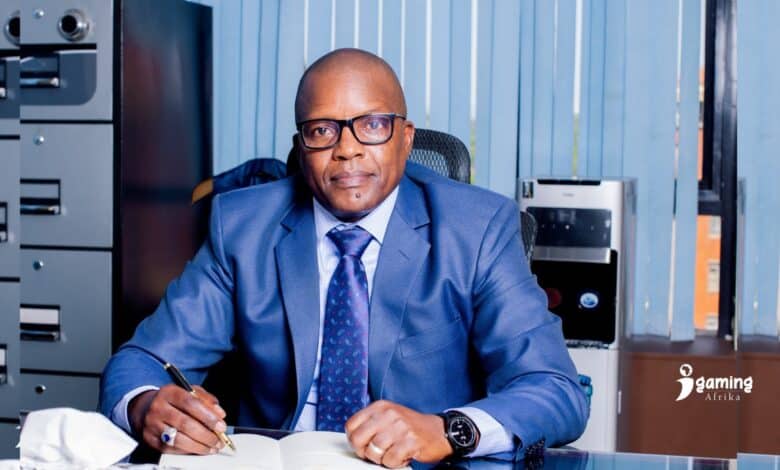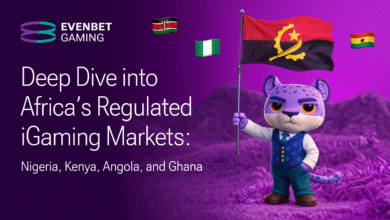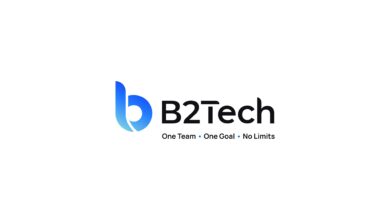Exclusive: Unveiling Kenya’s Gaming Landscape: New Regulations, Taxation and Future Industry Trends

Since 1966, the Betting Control and Licensing Board (BCLB) has been responsible for regulating gaming activities in Kenya. Since its formation more than half a century ago, there has been intense growth in the gambling scene from casinos to the gambling contests that we have including the Kenya Charity Sweepstake (KCS) owned by Tenlot Group Ltd of the United Kingdom (UK) and various lotteries we are seeing now. Furthermore, there has been an onset of online gambling thanks to the adoption of technology. We caught up with Peter Mbugi, the Director of the BCLB to discuss more about the momentous growth in the gaming industry in Kenya with Gaming now driven by technology. betting regulations taxation
iGaming AFRIKA : Could you elaborate on the specific strategies BCLB has implemented within the existing legal framework to regulate gaming in alignment with international standards, despite the challenges posed by outdated laws in the rapidly evolving online gaming industry?
Peter Mbugi : Well, gaming is no longer the major brick-and-mortar casinos we used to have, as much of it is now online. Therefore, there have been quite a number of challenges in trying to keep pace with the changing environment and changing technology. We, as the board, have been trying to ensure that within the law we have, and as you know, we are currently trying to repeal this law because it is old and trying to come up with a fresh law. So one of the major challenges has been keeping pace within that legal framework while trying to keep pace with the gaming industry. That is now being addressed through the revisiting of that law. But as we do that, we have also been able to use that law, weak as it is, to ensure that we regulate gaming to keep in line with international standards, irrespective of the fact that there are shortcomings in doing so.
iGaming AFRIKA : Could you share specific initiatives that have attracted other countries to benchmark with BCLB regarding gaming regulation? Additionally, how do you envision the proposed changes in the law will further solidify Kenya’s position as a significant regulator in the African gaming industry?
Peter Mbugi : We’ve been looking around to see what other institutions are doing in other jurisdictions during meetings and forums that involve other regulators. We are also members of the Association of Gaming Regulators in Africa (AGRA), and we look towards these forums to ensure that we keep up. It has not been easy, but we now see a layer of hope with the law we’ve tried to change since 2019. As we speak, that law is waiting for a third reading in parliament, and we hope that it will pass. This law will create a new layer of authority that will regulate gaming other than the board itself and keeping it in tandem with other institutions that regulate similar industries in other jurisdictions.
iGaming AFRIKA : Which are the African countries that have ever come to benchmark with BCLB in Kenya?
Peter Mbugi : Quite a number of countries have sought to come and benchmark with us. We’ve had Malawi, Ethiopia, Lesotho, and other countries that want to find out exactly what we are doing. Kenya comes in third after South Africa and Nigeria when it comes to gaming, and with more ranging laws, we will be able to regulate more effectively.
iGaming AFRIKA : Do you take the initiative to benchmark with the other countries superseding Kenya?
Peter Mbugi : We have intended to benchmark with other jurisdictions that are far ahead of us because we want to learn from the best. For example, we have wanted to find out how the Regulatory Commission of the UK, Canada, South Africa, and the ones within our continent do their things. But basically, what will expose us to all those experiences will be based on the new law, which also creates a national lottery. It’s a new creation, and you will realize countries like the UK and South Africa have been running lotteries for the longest time. So these are the kinds of jurisdictions that we would like to learn from, especially how these lotteries are run alongside other gambling activities. So, we hope to benchmark in the near future.
iGaming AFRIKA : iGaming has now become technology-driven. It’s no longer just the tables and roulette, as it’s now out there. How do you try to adapt to the new technological advancements within the industry? bclb kenya betting regulations taxation
Peter Mbugi : Well, as gaming has now become technology-driven, it also calls for a change in training and capacity building for officers who are handling the gaming environment. So I think this whole component implies a lot in terms of resources, investment, and so on. It is one of the areas where you will hear regulators say that operators are running faster than the regulators. This is because every time operators innovate, they cannot regulate what you have not seen. That is why, in some instances, regulations, rules, and laws don’t keep pace with the environment. But it should not be that the laws are far behind, because then you will not be regulating. And this is the case; we have been in Kenya for a while. Initially, online gaming was not included in the laws. But as we speak, the new laws of today envisage and recognize technology. This also provides a wider avenue for the board to do anything pertaining to technology. What we are trying now is to keep up with what is out there. We also have other institutions that are supportive of us. Operators keep on innovating, and the gap we have between us and them is grappling to keep up with their advancements.
iGaming AFRIKA : Aside from keeping up with emerging technology, what other challenges are you facing as a board, and how do you go about tackling them?
Peter Mbugi : Gaming is no longer what it was the other day. It was a recreational activity, something to do in your leisure time, but now the attitude has changed from being a leisure activity to being a source of income. This has led to the problem of addiction to gambling. It starts with you wanting to bet to get money for school fees and experiencing a loss. While trying to compensate for the money you lost, you lose some more, and it becomes a cycle. You find yourself hooked. As a board, that becomes a challenge for us. Trying to convince people to game is not a source of livelihood but a recreational activity. It may not be possible to do that today or tomorrow, but it will be possible through public desensitisation and the promotion of responsible gaming attitudes. Unemployment is also another cause, and people wanting easy money makes gaming look bad.
Another issue we discuss as a board is wondering how gaming contributes to national development. We have been talking about corporate social responsibility (CSR) activities and if we can reach out and address the problem of gambling, although it has not reached extreme levels.
Read Also: Marocaine Des Jeux et Des Sports and Intralot extends lottery contract
As I aforementioned, one of the challenges we face is that the law is very weak, so the penalties are very small, which makes enforcement of the law difficult and costly. Practising illegal gambling is also a challenge because now it is no longer gambling, it becomes something else entirely. The penetration of websites that are not licensed in Kenya presents a problem of its own. Allowing people to place bets on these platforms exposes punters to danger because if you win and don’t get paid, there is no recourse. This also results in a loss of government revenue and fees because they don’t pay taxes. But we are working with the Communications Authority of Kenya (CAK) to flag down those websites that are not licensed to work in Kenya, as well as authorities from other jurisdictions to penalise companies that are not licensed here.
Capacity is also a challenge that we’re facing. As technology moves, we require capacity building in terms of staff, equipment, and so on. Government resources may not be as adequate as one would want for such training. Like in gambling, you will realize we don’t have any institution in Kenya that provides this training, maybe in places like Las Vegas and others that offer technical training.
iGaming AFRIKA : What measures is the board taking to ensure there is fair play and responsible gambling while also ensuring that you protect user interests?
Peter Mbugi : Our strategic objective is basically to ensure that gaming is done with due propriety, that it’s fair, and that everybody gets what they deserve. One of the things we have noticed is that companies are not very clear about the terms and conditions of the games they offer. If you do that, that means there is no backup or direction in terms of claims. If you are offering a game and you do not state the maximum winnings, the winnings will multiply to even a billion. What we are doing currently is not allowing any operator to offer any games without strictly providing the terms and conditions of those games. Besides that, we’ve been very particular with complaints that have been forwarded to us because we have the mandate to inquire into complaints made by any party. We have even opened an online complaint mechanism where people can forward their complaints on issues relating to non-payment. This year, for example, we have had 18 complaints, we have resolved about nine and we all ensure we solve all of them. Let any company that cannot pay genuine winnings be warned because it is our responsibility to ensure anyone gets paid what they have won or are owed. Previously, such cases were taken to court, which took quite some time, and the court also did not have jurisdiction over the first instance. The law states that you first seek an audience with the board, and if the board’s decision is not satisfactory, you can take it to the high court and appeal. bclb kenya betting regulations taxation
The new law may also introduce a tribunal. So other than having our own internal mechanism, if you have a verdict that is not satisfactory, instead of going to court, you take it to the tribunal. But I want to assure you that we have been able to deal with the cases involving payments forwarded by punters. If gambling was let loose without regulation, there would be chaos. Looking at that scenario, I think the president, in his own wisdom, set up a task force which was to look at the gaming industry in totality and propose ways and means of regulating it, so it becomes beneficial to the country while reducing its negative impact. Out of that task force, there were creations of two bills and a policy, the gaming policy, the gambling control bill, and the national lottery bill.
iGaming AFRIKA : Will the creation of the National Gambling Authority supersede the mandate of the BCLB?
Peter Mbugi : The BCLB will cease to exist. With the creation of the new authority, it will take over the responsibilities currently being undertaken by BCLB. Due to transitional clauses, BCLB will now transition to the National Gambling Authority.
iGaming AFRIKA : The new laws have proposed the introduction of a 1 percent gambling revenue fee and a 15 percent gambling tax. What would be the impact of these charges if the proposals are passed into law? bclb kenya betting regulations taxation
Peter Mbugi : The essence of these charges would be to help address the gambling issues while also supporting the operations of the authority. You have created an authority without resources, how will it operate? If we say they will operate through licences, how many licences do we issue and how much is a licence? Can that truly sustain an authority? The 15 percent gambling tax on the other hand was brought forward by the Finance Bill, not the Gambling Bill. It is also not fixed in stone that it will remain at a certain percentage, it may change with government requirements.
iGaming AFRIKA : What response do you have to the people who think that the industry in Kenya currently feels unstable due to the constantly changing legislation?
Peter Mbugi : In regards to the predictability of business in this country, it is very predictable. In fact, it’s stable. It’s only operators who think otherwise because when the government says to pay a certain amount, they feel like their territory is being invaded but this happens everywhere because the government has to run.
iGaming AFRIKA : How effective has the 5 percent increase on excise duty been since it was changed?
Peter Mbugi : Once the law passed, we had the Finance Bill which brought the excise duty from 7.5 percent to 12.5 percent. The excise duty has an impact on punters, not the operators because this is money that is cut before the placed bet goes through. The reason we say this is not yet the operator’s money is because of the real-time revenue collection the Kenya Revenue Authority (KRA) introduced. From the excise duty on winnings, the charges are collected from the source and it has been very efficient and effective. But I think the people who can positively confirm the efficacy of the excise collected and the difference it has made is the taxman.
iGaming AFRIKA : what should we expect once the proposed Bills, that is the Gambling Control Bill and the National Lottery Bill are put into law?
Peter Mbugi : I cannot state the actual Bill until the final amendment is passed. I might state something that will be excluded from the final Bill. From the suggestions given by the committee and finally the approval of parliament, we’ll then be able to see what the Bill will present. Like issues for the tribunal, we did not have a tribunal within the first Bill, we had a dispute resolution committee. If you look at the operations of a committee and a tribunal, a tribunal is more complicated. There have also been talks of amending the 1 percent fee as well, which is why it is best we wait and see what the final bill will look like.
iGaming AFRIKA : What advice would you give to any potential investors who would want to perhaps acquire a licence?
Peter Mbugi : Initially, people were scared. They would be told getting a licence is difficult. Those are brokers trying to maintain their line of operation between BCLB and investors. However, the turn-around time for an application is a maximum of two weeks. The only thing that may delay a licence application is if you are a foreign investor, you have to register your company and go through some verification processes. This may take an unprecedented amount of time. Regardless of all that, anyone who wants to come and invest is welcome. bclb kenya betting regulations taxation
iGaming AFRIKA : What would you say are some of the highlights of the new organisation’s website?
Peter Mbugi : The website is still a work in progress. It has not reached where we want it to be. There are some things that we have not yet put in place but we are working on it. We are also aiming for our services to be accessed through e-citizen and making our website to be even more appealing. Things will also change with the changing mandates as well.
iGaming AFRIKA : Is the board actively collaborating with stakeholders to gather feedback and address concerns?
Peter Mbugi : We always have stakeholder forums and the last one was at Kenya School of Government. They are usually biannual and the next one will be in preparation for the licensing period. We meet to discuss challenges because the board is not out to punish or make life difficult for operators. With the new proposed laws, stakeholder involvement will be pivotal in terms of developing regulations
Key Highlights bclb kenya betting regulations taxation
- Initially, online gaming was not included in the laws. But as we speak,the new laws today envisage and recognize technology. This also provides a wider avenue for the board to do anything pertaining to technology.
- One major challenge has been keeping pace within that legal framework while trying to keep pace with the gaming industry.
- Initially, gaming was a recreational activity, something to do in your leisure time but now the attitude has changed to it being a source of income. This has led to the problem of addiction to gambling.
- The law is very weak so the penalties are very small, which makes enforcement of the law difficult and costly.
- The penetration of websites that are not licensed in Kenya presents a problem for people to place bets hence exposing punters to danger because if they win and don’t get paid there is no recourse. This also results in a loss of government revenue and fees because they don’t pay taxes.
- We have opened an online complaint mechanism where people can forward their complaints on issues relating to non-payment. This year we have had 18 complaints, resolved about nine and are working to solve them all.
- The excise duty has an impact on punters, not the operators because this is money that is cut before the placed bet goes through. bclb kenya betting regulations taxation
Copyright 2024 © Media-Tech iGaming Technology Limited: Permission to use the content or quotations from this article is granted, subject to appropriate credit being given to www.igamingafrika.com as the source.























